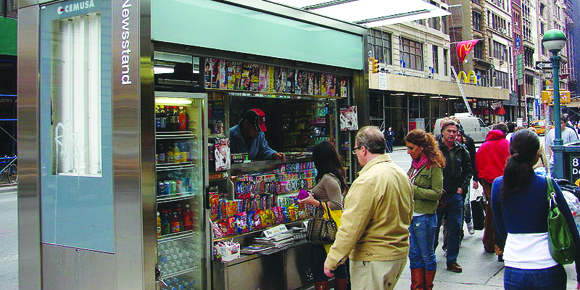Because the term Free Press actually proclaims freedom of the press, it has inevitably become a popular name for a newspaper, albeit not as popular as we might expect. Free Press ranks only about sixth in world-wide frequency.
The most recurrent word in newspaper names is “news.” Thus, we find Zeitung (news) in German-language papers as early as 1609. Weiner Zeitung (Vienna News), first published in 1703, is still around
today.
Next in popularity is “Daily,” followed by “Times,” “Herald,” and “Journal.”
We can readily understand why Free Press, News, Daily, and Journal are common newspaper names. However, other titles seem problematic.
Why would any paper be called “Tribune?” This Late Middle English word originated in the Latin, tribunis (military officer). By 1771, a tribune referred to a basilica’s vaulted ceiling area.
Since neither above meaning relates to the dissemination of news, we must investigate tribune’s derivatives. We find that Tribunal means, “judicial assembly; place of judgement or decision.” Therefore, a newspaper called Tribune indicates an intention to comment, analyze, or criticize current events.
Some papers are named for heavenly bodies — Winnipeg Sun and Toronto Star, for example. The apparent reason is that both sun and stars can theoretically observe everything going on in the world below. By extension, we find Observer to be another oft-used newspaper name.
In addition, the newspaper’s role in observing and reporting is exemplified in publications named, Reporter, Review, and Chronicle.
The oldest still-existent newspaper in the world is the Swedish, Gazeta, first published in 1641. However, for the last 10 years, Gazeta is found only on-line.
Gazette — the English version of Gazeta — is one of the most-used newspaper names of all time. In Scotland alone, nine papers incorporate the word into their titles. An example is, The Carluke Gazette.
The Halifax Gazette, first published in 1752, is the oldest continuing newspaper in Canada.
An interesting word, gazette came into English via French from the Italian, gazet (a Venetian coin). It is a reference to the price of the paper. Gazette is defined as, “a news-sheet giving an account of current events.”
Papers called Courier, Herald, Messenger, Dispatch, Telegram, and Post, all suggest getting the news out there.
Neither Globe nor Mail makes it onto the list of popular newspaper names. As we know, The Globe and Mail is an amalgamation of two separate newspapers that took place in 1936. The word, “globe,” suggests an international focus while “mail,” like “messenger” and “telegram,” leans toward the delivery of the news.
The Inquirer and The Examiner
indicate in-depth investigation of news, an indication not usually carried out, at least not by The National Enquirer.
The Mirror hints at a reflection, a glimpse into what is going on.
Mercury was the messenger of the gods and newspapers by that name imply their intention to get their message delivered in a speedy and reliable fashion.
All the names we have discussed have centuries of use behind them so perhaps new publications deserve new names. Still, with the troubled status of today’s newspapers, we may never again see a new print publication.



